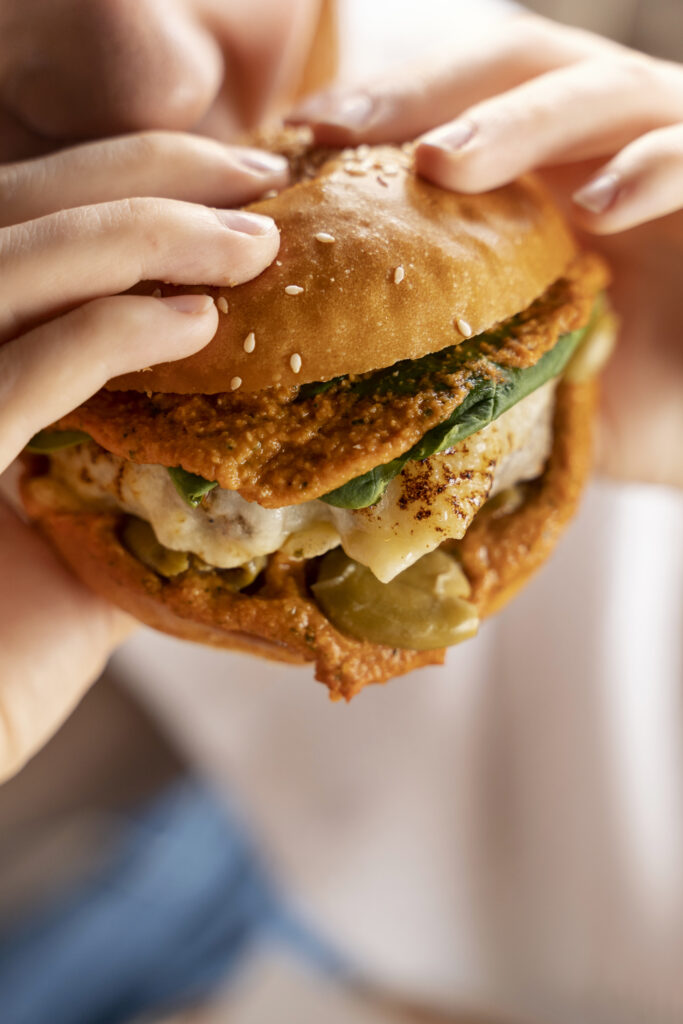
Anxiety has become a prevalent issue in today’s fast-paced world, and while there are various triggers, one surprising culprit is the food we consume. This article will dive into 10 Surprising Ways Junk Food Fuels Anxiety and How to Stop It, shedding light on the hidden connection between junk food and anxiety. We’ll explore how common junk foods spike stress levels, the vicious cycle of anxiety leading to more junk food cravings, and how dietary choices impact mental health. Plus, you’ll discover healthier alternatives and foods that can help reduce anxiety. Here’s a brief outline of what we’ll cover:
- The Hidden Connection: How Junk Food Increases Anxiety Levels
- 5 Common Junk Foods That Spike Your Stress
- How Sugar and Processed Foods Affect Your Mental Health
- The Vicious Cycle: Anxiety Leading to More Junk Food Cravings
- Healthy Alternatives: Top 7 Foods to Reduce Anxiety
Stay tuned to learn how you can make dietary changes to support better mental health and break free from the grips of anxiety-inducing foods.
The Hidden Connection: How Junk Food Increases Anxiety Levels
It might be shocking to realize that our beloved junk foods are not just waistline saboteurs but can also mess with our minds. Research indicates a clear link between junk food and anxiety. Consuming high amounts of processed foods, sugars, and unhealthy fats can disrupt the brain’s natural chemistry. This disruption influences mood and anxiety levels, often amplifying feelings of stress and worry. It’s like adding fuel to the fire!

5 Common Junk Foods That Spike Your Stress
There are certain junk foods that are more notorious for their anxiety-inducing effects. Let’s uncover five common ones:
- Sugary drinks: Soda, energy drinks, and even those seemingly innocent fruit juices loaded with added sugars.
- Fried foods: Think French fries, fried chicken, and other deep-fried delights.
- Processed snacks: Chips, cookies, and other pre-packaged munchies are major culprits.
- Fast food items: Burgers, hot dogs, and pizzas from fast food joints.
- Artificially flavored and colored sweets: Candies, gummy bears, and anything with synthetic additives.
These foods may give a temporary high, but they eventually lead to a crash that heightens anxiety and stress.
How Sugar and Processed Foods Affect Your Mental Health
There’s a bittersweet truth behind sugar and processed foods—they can wreak havoc on your mental health. When consumed in large quantities, sugary and processed foods cause a spike in blood sugar levels. This spike is followed by a rapid drop, leaving you feeling fatigued, irritable, and anxious. The regular consumption of these foods has been linked to higher rates of depression and anxiety, emphasizing the need for a balanced diet.
The Vicious Cycle: Anxiety Leading to More Junk Food Cravings
A cruel reality many face is the cycle where anxiety leads to junk food cravings, which in turn increase anxiety. When we feel anxious, our bodies crave quick energy sources, and unfortunately, junk food often tops the list. However, indulging in these cravings only provides temporary relief. It’s a vicious loop where stress and junk food feed off each other, making it challenging to break free.
Healthy Alternatives: Top 7 Foods to Reduce Anxiety
Fortunately, there are healthier alternatives to keep anxiety at bay. Here are seven foods that can help reduce stress and improve mental health:
- Blueberries: Packed with antioxidants that combat stress.
- Almonds: Rich in magnesium, which helps regulate mood.
- Dark chocolate: In small amounts, it boosts serotonin production.
- Yogurt: Probiotics help maintain gut health, which is crucial for mental well-being.
- Salmon: High in omega-3 fatty acids that reduce anxiety.
- Spinach: Full of magnesium and folate, both anxiety reducers.
- Chamomile tea: Renowned for its calming effects and ability to soothe nerves.
Empowering yourself with these anxiety reduction foods can make a significant difference in your overall mental health.
Anxiety and Nutrition: The Importance of a Balanced Diet
Understanding the relationship between anxiety and nutrition is critical for anyone seeking to improve their mental health. A well-balanced diet provides the essential nutrients that support brain function and emotional regulation. Consuming a variety of fruits, vegetables, lean proteins, and whole grains can significantly reduce anxiety levels. These foods supply vitamins, minerals, and antioxidants that help combat oxidative stress and inflammation, both of which are linked to mental health issues.
Processed Foods and Mental Health: The Science Behind the Connection
The science linking processed foods and mental health issues is robust. Processed foods often contain trans fats, high levels of sugar, and artificial additives that can lead to inflammation in the brain. This inflammation can interfere with the production of neurotransmitters like serotonin and dopamine, which play a vital role in regulating mood and anxiety. By reducing the intake of processed foods, you can help restore the balance of these crucial brain chemicals, leading to improved mental well-being.
Sugar Effects on Mental Health
The effects of sugar on mental health are profound. High sugar intake has been shown to trigger the release of stress hormones like cortisol. Elevated cortisol levels can exacerbate feelings of anxiety and contribute to long-term health problems such as hypertension and diabetes. Additionally, a sugar-rich diet can lead to an imbalance in gut bacteria, further affecting your mental state. Cutting back on sugar can lead to more stable energy levels and a calmer mind, making it easier to handle daily stressors.
How to Reduce Anxiety with Diet
Reducing anxiety through diet is not just beneficial but also practical. Start by gradually replacing anxiety-inducing foods with healthier options. Opt for whole foods like fresh fruits and vegetables, lean meats, and whole grains. Incorporate anxiety reduction foods such as those rich in omega-3 fatty acids, like salmon and walnuts, and those high in antioxidants, like leafy greens and berries. Drinking plenty of water and maintaining regular meal times can also help stabilize your blood sugar levels, preventing mood swings and anxiety.
The Junk Food-Stress Link: Breaking Free
Breaking free from the junk food-stress link requires a multifaceted approach. Begin by recognizing and addressing the emotional triggers that lead to junk food cravings. Stress management techniques such as mindfulness, meditation, and regular physical activity can help reduce the urge to reach for unhealthy comfort foods. Planning and preparing nutritious meals ahead of time can also make it easier to stick to a healthy diet, ultimately supporting better mental health and reducing anxiety.
By understanding and addressing the complex relationship between junk food and anxiety, you can take proactive steps toward a healthier, more balanced life.
The connection between junk food and anxiety is more significant than many realize. By understanding how certain foods contribute to anxiety and taking steps to replace them with healthier options, you can break the vicious cycle of stress and poor dietary choices. Embracing a balanced, nutritious diet not only supports physical health but also plays a crucial role in maintaining mental well-being. Remember, small changes can make a big difference, and it’s never too late to start fueling your body and mind with the right foods for a happier, healthier life.